Museo del Prado
Museo del Prado: Pintores y familias reales / Painters and royal families playing cards.
This large-print/low vision pack, published by Piatnik, displays the works of four of the main portrait painters of the Spanish monarchy housed in the Museo del Prado. The four artists are: Titian, 1488-1576 (clubs); Velazquez, 1599-1660 (spades); Anton Raphael Mengs, 1728-1779 (diamonds); Goya, 1746-1828 (hearts). Self-portraits are presented on the aces, while the court cards show portraits of members of the Hapsburg and Bourbon monarchies. There are two paintings representing the jokers: the first is Diego de Acedo and the second is Sebastian de Morra. Both were court jesters at the court of Philip IV of Spain, and both were painted by Diego Velázquez. Also included is a double-sided information card in Spanish and English.
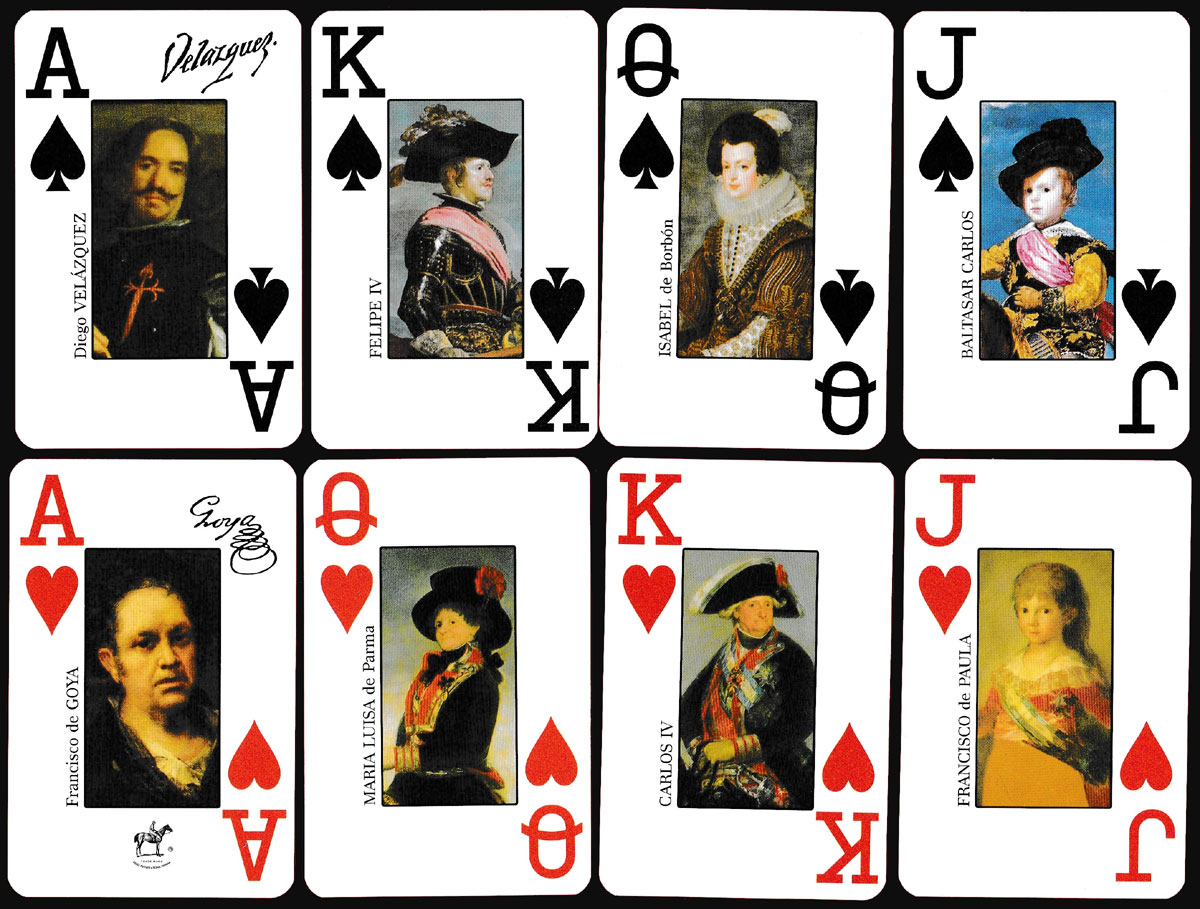
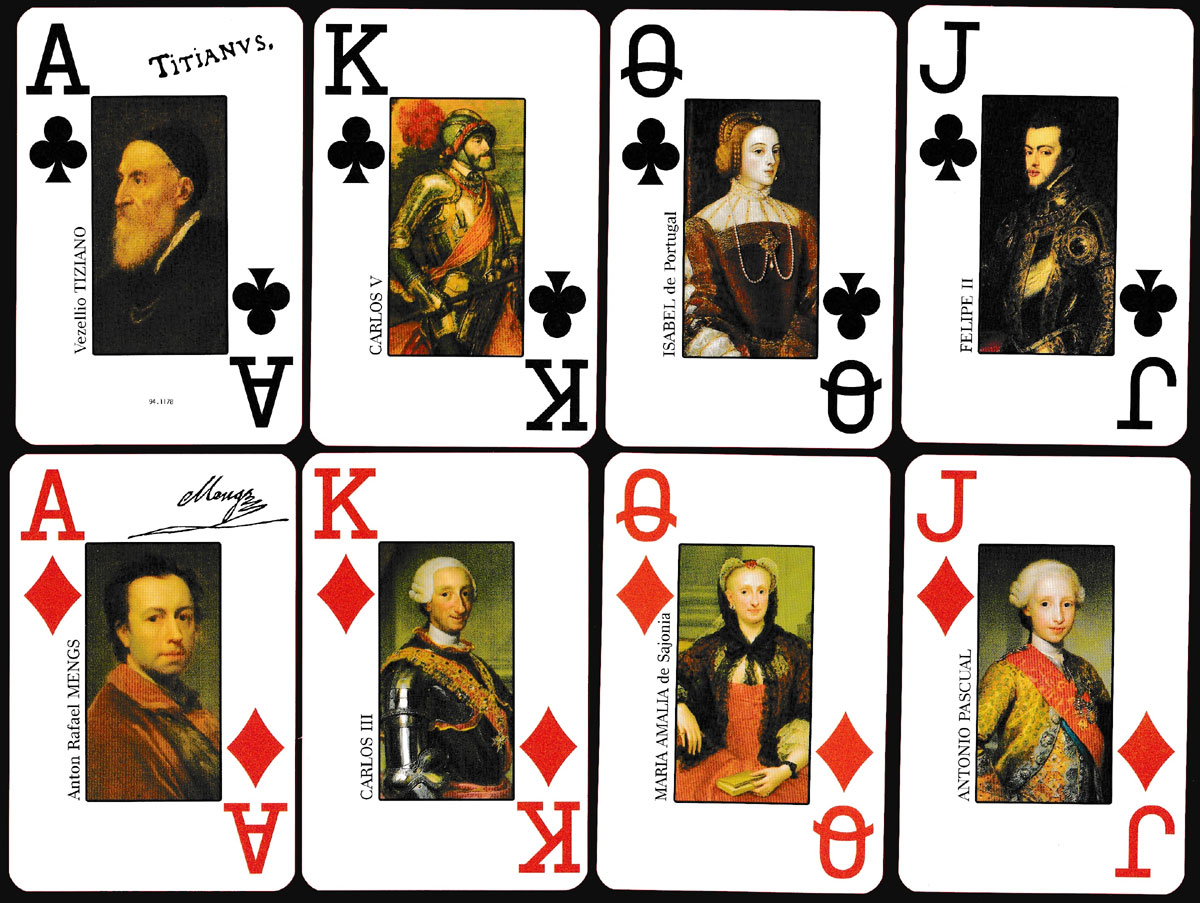
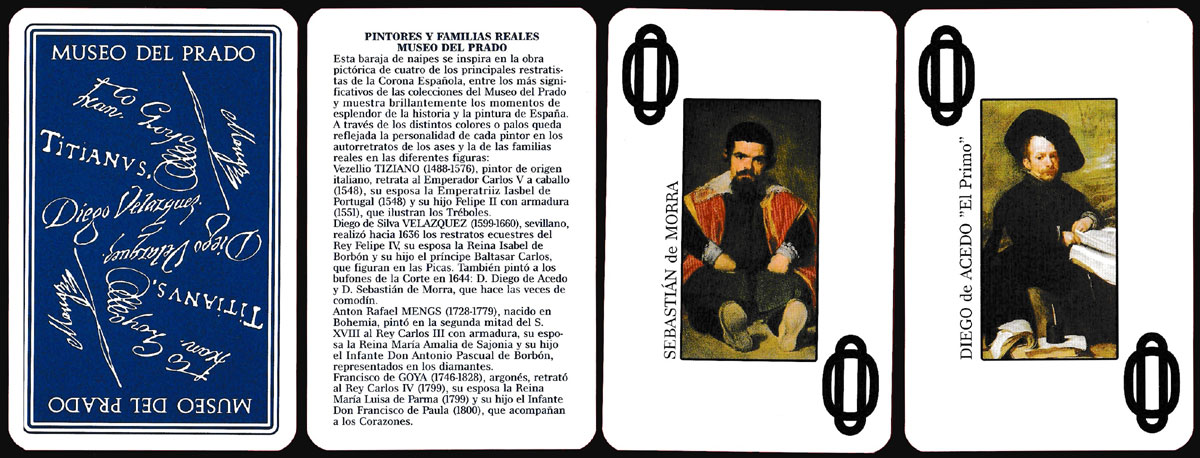
Above: Museo del Prado: Pintores y familias reales / Painters and royal families playing cards produced by Piatnik, Austria.
By Peter Burnett
United Kingdom • Member since July 27, 2022 • Contact
I graduated in Russian and East European Studies from Birmingham University in 1969. It was as an undergraduate in Moscow in 1968 that I stumbled upon my first 3 packs of “unusual” playing cards which fired my curiosity and thence my life-long interest. I began researching and collecting cards in the early 1970s, since when I’ve acquired over 3,330 packs of non-standard cards, mainly from North America, UK and Western Europe, and of course from Russia and the former communist countries.
Following my retirement from the Bodleian Library in Dec. 2007 I took up a new role as Head of Library Development at the International Network for the Availability of Scientific Publications (INASP) to support library development in low-income countries. This work necessitated regular training visits to many sub-Saharan African countries and also further afield, to Vietnam, Nepal and Bangladesh – all of which provided rich opportunities to further expand my playing card collection.
Since 2019 I’ve been working part-time in the Bodleian Library where I’ve been cataloguing the bequest of the late Donald Welsh, founder of the English Playing Card Society.

Leave a Reply
Your Name
Just nowRelated Articles
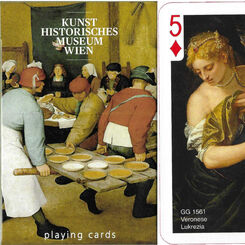
Art pack I
Art pack featuring Old Masters, including Bruegel, Vermeer, Titian, Raphael, Caravaggio, Canaletto, ...
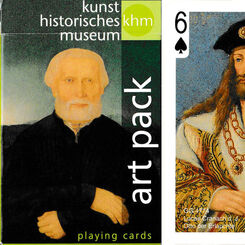
Art pack II, Austria
Renaissance portraits by Albrecht Dürer, Lucas Cranach, Hans Holbein, Barthel Beham, Christoph Amber...
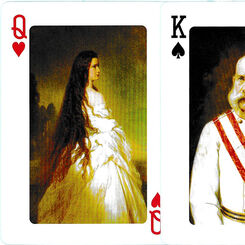
Sissi playing cards
produced for the Austrian tourist market.
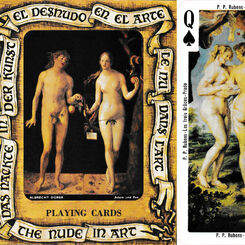
El Desnudo en el Arte
The Nude in Art / El Desnudo en el Arte, Spain, 1977 (reprint 1990)

Ases de la pintura / Masters of painting
Ases de la pintura / Masters of painting playing cards made by Naipes Comas, Spain, c.1990.
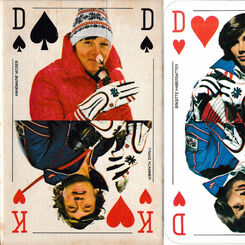
Rika playing cards
Playing cards depicting famous Austrian skiers of the 1970s.
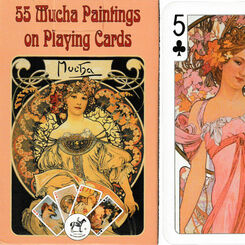
55 Mucha Paintings on Playing Cards
Fully illustrated pack featuring a large selection of Mucha’s works.
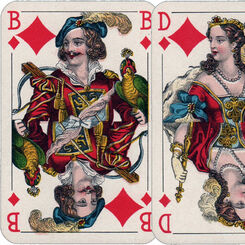
Piatnik No.97
Non-standard French-suited cards published by Ferd Piatnik & Sõhne, Vienna, c.1940s.
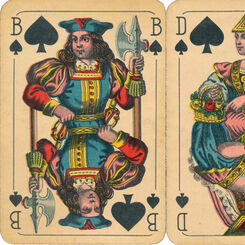
Vienna (ex-Lyon) pattern
‘Vienna pattern’ derived from archaic Lyon pattern by Ferd Piatnik & Söhne A.G., c.1926-1934.
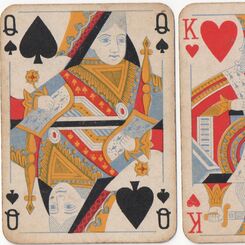
48: Ferdinand Piatnik & Sons
Ferd. Piatnik produced a very large range of cards with many different standard and non-standard pat...

Popular No.257
Piatnik’s “Popular Playing Cards” No.257

Die Neue ÖVP
Promotional deck for the Austrian People’s Party (ÖVP) printed by Piatnik, 1996.
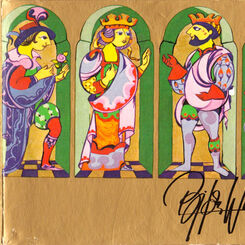
Bjørn Wiinblad
Bjørn Wiinblad (1918-2006) was a Danish painter, designer and ceramics artist.
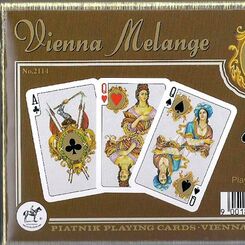
Vienna Melange
“Vienna Melange” Playing Cards by Piatnik with a historical feel representing the four races that ma...
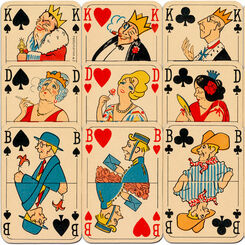
Rummy No.210
Period cartoon images from the 1930s. The Kings are in fancy dress ready to party, the Queens appear...
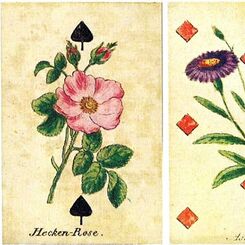
Löschenkohl’s Botanical Playing Cards
Löschenkohl produced a second copper engraved deck, the Botanical Playing Cards, in 1806. This deck,...
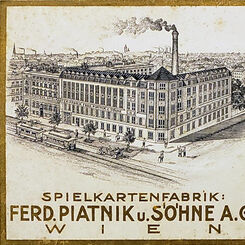
Ferd. Piatnik & Söhne
Ferdinand Piatnik was born in Ofen on October 14, 1819.
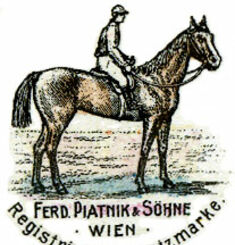
Piatnik Tarock
Deck of "Industrie und Glück" or "Rural Scenes" tarock cards manufactured by Ferd Piatnik & Söhne, V...
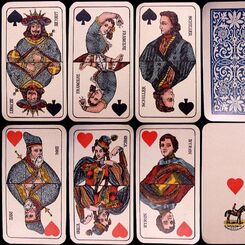
Literary Figures
Non-Standard Literary Figures playing cards manufactured by Ferd. Piatnik & Söhne A.G., Vienna, 1924...
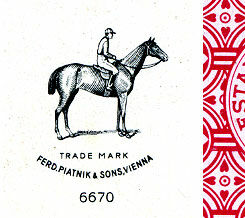
Piatnik & Sons for the“Estanco de Naipes del Perú”
Playing Cards made by Piatnik & Sons for the“Estanco de Naipes del Perú”, c.1960.
Most Popular
Our top articles from the past 60 days


 Your comment here. Your comment here. Your comment here. Your comment here. Your comment here. Your comment here. Your comment here. Your comment here. Your comment here. Your comment here. Your comment here. Your comment here. Your comment here. Your comment here. Your comment here. Your comment here. Your comment here. Your comment here. Your comment here. Your comment here. Your comment here. Your comment here. Your comment here. Your comment here. Your comment here. Your comment here. Your comment here. Your comment here. Your comment here. Your comment here. Your comment here. Your comment here.
Your comment here. Your comment here. Your comment here. Your comment here. Your comment here. Your comment here. Your comment here. Your comment here. Your comment here. Your comment here. Your comment here. Your comment here. Your comment here. Your comment here. Your comment here. Your comment here. Your comment here. Your comment here. Your comment here. Your comment here. Your comment here. Your comment here. Your comment here. Your comment here. Your comment here. Your comment here. Your comment here. Your comment here. Your comment here. Your comment here. Your comment here. Your comment here.




















